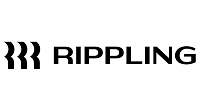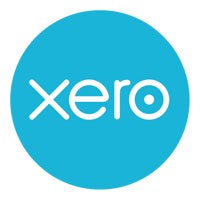[ad_1]
As an employer in the UK, you need secure, HMRC-compliant payroll software that helps you pay workers on any pay schedule, deduct and record pension payments, generate payslips and report your PAYE information. But with dozens of payroll software options, how do you know which one your organisation should choose?
In this article, we explore the top payroll software solutions for UK businesses. Each payroll company on our list is HMRC-recognised and enables online PAYE, but each product varies in terms of ease of use, features, cost and customer support.
Jump to:
Top UK payroll software: Feature comparison table
Plan and pricing information up to date as of 10/17/2023.
*Listed starting price excludes VAT.
**Cost of payroll is waived for two months for new customers adding Xero Payroll to their Xero accounting plan.
The best payroll software for UK businesses
Sage Payroll: Best UK payroll software

Sage Payroll is a fully automated software solution for small and medium-sized businesses in the UK. Their cloud-based payroll solution is beneficial for start-ups and small businesses, as it comes with helpful features like a simple four-step pay run process and 24/7, year-round expert support.
Every Sage Payroll plan includes pension filing, payslip generation and HR features like leave management and shift scheduling. And if Sage Payroll’s features don’t add enough support for your growing business, Sage 50 and Sage 50 P11D are two additional Sage UK products with enough features for bigger, more complex companies.
Pricing
There are three Sage Payroll plans: Payroll Essentials, Payroll Standard and Payroll Premium. All three plans come with three free months. After the free trial, pricing breaks down as follows:
- Payroll Essentials: £10 per month (excluding 20% VAT).
- Payroll Standard: £20 per month (excluding 20% VAT).
- Payroll Premium: £30 per month (excluding 20% VAT).
Each plan includes payroll and HR management for five employees. You can add up to 150 employees on Sage Payroll, but each employee after your fifth hire costs an additional fee per month that varies depending on the product:
- Essentials: £2.00 per extra employee per month.
- Standard: £4.00 per extra employee per month.
- Premium: £6.00 per extra employee per month.
(The prices above exclude VAT.)
Key features
Every Sage Payroll plan, starting with Payroll Essentials, includes these basic (but essential) payroll features:
- Employee self-service P60s and payslips.
- Employee holiday tracking and management.
- Payroll and HR management for 5 to 150 employees.
Payroll Standard adds a personalised employee onboarding portal, a company org chart, automated workflows and additional leave tracking. Finally, with Payroll Premium, you get more expansive time features along with the other plans’ payroll and HR features, such as these:
- Online timesheet and overtime management.
- Per-day and per-project time tracking,
- Timesheet reports.
- Mobile employee shift swap (available on Android and iOS).
Pros and cons
| Pros | Cons |
|---|---|
|
|
Rippling: Best all-in-one business software

If you’re looking for standalone payroll software so fully automated that it practically runs itself, Rippling is a great choice.
With Rippling Payroll, employers can complete each payroll run in three minutes or less. All you have to do is verify that the numbers look correct before you run payroll, and Rippling takes care of the rest, including payslip generation and pension deduction and filing.
However, Rippling Payroll is just one facet of Rippling’s larger software ecosystem. Along with payroll, Rippling offers modules for the following services:
- Corporate card management.
- Remote device management.
- Applicant tracking system.
- Compensation management software.
- Employee benefits.
- Time tracking.
Rippling’s platform unifies and automates each of these business services, minimising manual data entry. Since Rippling offers modules for all the most crucial business services, it spares you the time and expense of finding distinct software providers for every business need.
Key features
Rippling offers one payroll plan. Whether you have two employees or 2,000, your Rippling payroll plan will include these features:
- HMRC-compliant tax filing and payment.
- Automatic journal entry creation.
- Minimum wage, overtime and leave tracking.
- Payslips, P45 and P60 generation and filing.
- Third-party accounting software integration, including with NetSuite.
If you manage a global workforce, you can opt for Rippling’s international payroll plan. With this plan, UK businesses can pay contractors and employees across the globe in local currencies.
Rippling’s time tracking, benefits and general HR services are available as separate modules. You can also add IT and finance modules that let you manage expenses, manage tech remotely and more.
To learn more about how Rippling works, where it excels and where it can potentially fall short, read our comprehensive Rippling review.
Pricing
Rippling’s customers essentially build their own packages from scratch, choosing which modules they want and opting out of those they don’t. As a result, Rippling typically provides custom quotes instead of listing straightforward, upfront pricing on its site.
That said, most of Rippling’s modules cost a monthly per-user fee, which is £7 per user per month (excluding VAT) for payroll. (For instance, if you’re processing payroll for three employees, you’ll pay £21 per month.)
The per-person fee is charged on top of an unlisted monthly base fee for Rippling Unity, Rippling’s operating system. Since each module costs an additional monthly user fee, the overall software price can add up quickly and may be too pricey for small businesses on a budget.
Pros and cons
| Pros | Cons |
|---|---|
|
|
Xero Payroll: Best employee experience

Xero Payroll is an optional service that can be added on to any of Xero’s four accounting plans for small and midsize businesses. Like Xero’s accounting software, Xero Payroll’s straightforward interface and clear dashboard are easy for employers to use.
Xero’s user friendliness extends to employees as well. Using Xero Me, Xero’s self-service payroll app for employees, workers can access their payslips instantly instead of waiting for you to print or email them. Employees can also use the app to check their leave balances, request leave and see their timesheets from any mobile device.
Along with overall ease of use, Xero also excels at collaboration. Instead of leaving payroll to one person, you can grant access to multiple admins with custom permissions. Managers can see and approve timesheets and requests for leave without seeing sensitive employee payroll data.
Key features
Xero’s single payroll plan is offered at a flat rate and includes all of the following features:
- Automatic pension enrolment and re-enrolment for eligible employees.
- Built-in timesheets with automatic leave tracking and easy approval.
- Secure, automated integration with various pension providers.
- Employee self-service access via Xero Me mobile payroll app.
Pricing
Adding payroll to your accounting subscription costs £5 a month for up to five employees, then an additional £1 per month per additional employee. Plus, if you’re new to Xero, payroll is free for up to two months with your Xero accounting subscription.
Xero’s accounting prices are as follows:
- Xero Starter: £15/mo. + VAT.
- Xero Standard: £30/mo. + VAT.
- Xero Premium: £42/mo. + VAT.
- Xero Ultimate: £55/mo. + VAT.
New users can also sign up to get 50% off the base price of any accounting plan (excluding VAT) for six months.
Pros and cons
| Pros | Cons |
|---|---|
|
|
QuickBooks Payroll: Best for QuickBooks Online users

QuickBooks Payroll is available only as an add-on for QuickBooks Online subscribers. If you don’t use (or aren’t interested in switching to) QuickBooks Online, QuickBooks Payroll won’t work for you.
But if you do use QuickBooks Online, QuickBooks Payroll is probably the easiest way to get started with payroll. Like Intuit’s cloud-based accounting software, Intuit QuickBooks Online, QuickBooks Payroll is easy to use and fully automated.
The cheaper of the two payroll plans is ideal for director-only businesses who need software solely to pay themselves. The more expansive Advanced plan adds HR tools for limited companies with multiple employees. Both plans integrate neatly with QuickBooks Online, accurately updating your books every time you run payroll.
Key features
QuickBooks has two payroll plans: The more basic Core Payroll and the more complex Advanced Payroll plan. Both plans support the following payroll features:
- Support for weekly and monthly pay schedules.
- Automatic pension assessment and employee enrolment.
- Pension calculations.
- Statutory payment management.
With Advanced Payroll, businesses get additional HR and payroll tools:
- Time-tracking tools, including time sheets, leave management and expense management.
- 30+ advanced, customisable payroll reports.
- Support for multiple pension schemes for different employees.
- Payroll deduction management, including court orders and salary sacrifice.
To learn more about how QuickBooks Payroll works, where it excels and where it can potentially fall short, read our comprehensive QuickBooks Payroll review.
Pricing
Unfortunately, QuickBooks Payroll doesn’t include much information about its payroll plans online. Instead, payroll is listed as an add-on to most QuickBooks Online plans with prices starting at £2 per month. It’s not clear if that price refers solely to the Core Payroll plan or if the cost is charged per person paid.
QuickBooks Online accounting plans start at £15 per month + VAT (20%) + £2 for payroll.
No matter which QuickBooks plan you want, you can choose between two excellent discount options: 50% off the plan’s base price for six months or a one-month free trial. You cannot choose both discounts — you’ll have to opt for one over the other.
Pros and cons
| Pros | Cons |
|---|---|
|
|
FreeAgent: Best for 10-employee businesses

If you want business software that bundles accounting with payroll, QuickBooks isn’t your only option. FreeAgent’s combined accounting and payroll software was built solely with small businesses in mind (specifically, small businesses with no more than 10 employees). As a result, the software is extremely easy to use — even if you’re a first-time employer without a financial background.
Key features
While FreeAgent includes basic payroll processing, it’s primarily an accounting software program. As such, it includes an impressive array of financial features, such as estimates, invoices, expense tracking, cash flow tracking and time tracking.
In terms of payroll, FreeAgent offers a bit less than some payroll-only solutions. For instance, while it allows you to create payslips each month, employees can’t access them through a self-service portal. Instead, you have to print or email the payslips and distribute them yourself.
Still, its payroll tool includes all the features necessary for business owners to accurately pay employees in house:
- Automatic monthly payslip generation.
- P60 creation.
- Student loan, maternity pay and paternity pay management.
- Automatic journal entries and general ledger updates.
Pricing
If you have a business bank account through Ulster Bank NI, Royal Bank of Scotland or NatWest, you can get FreeAgent completely free as long as you make at least one transaction per month.
Otherwise, FreeAgent breaks down its paid payroll/accounting plans by business type and size:
- Sole traders: £19/mo. + VAT (paid monthly) or £190 + VAT (paid yearly).
- Partnerships or LLPs: £24/mo. + VAT (paid monthly) or £240 + VAT (paid yearly).
- Limited companies: £29/mo. + VAT (paid monthly) or £290 + VAT (paid yearly).
FreeAgent offers new customers 50% off its base price for six months (if you pay monthly) or 12 months (if you pay yearly), which lowers its starting prices accordingly:
- Sole traders: £9.50/mo. + VAT (paid monthly) or £95 + VAT (paid yearly).
- Partnerships or LLPS: £12/mo. + VAT (paid monthly) or £120 + VAT (paid yearly).
- Limited companies: £14.50/mo. + VAT (paid monthly) or £145 + VAT (paid yearly).
Pros and cons
| Pros | Cons |
|---|---|
|
|
Moneysoft: Best for paying contractors and subcontractors

Are you part of a construction business that works primarily with contractors and subcontractors? Moneysoft’s desktop-based payroll software automates and simplifies payroll for businesses in any industry, but it’s particularly useful for construction businesses that prefer software with built-in contractor payroll services.
Moneysoft does have some key limitations. As a desktop-based software with local storage only, it can’t be used to run payroll on the go. Plus, while Moneysoft includes a calendar for recording employee holidays and leave, it doesn’t have a built-in timesheet or time-tracking feature.
Still, if you want to handle contractor payroll alongside in-house employee payroll, Moneysoft is a good choice.
Key features
Each Moneysoft plan includes the following general payroll features:
- Automatic payroll runs and pension enrolment.
- Payslip generation.
- Employee calendars for recording absences, sick leave and holidays.
- Automatic syncing with Money Manager.
- CSV file exports for other third-party bookkeeping software.
It also offers a slew of construction-industry specific features, such as these:
- CITB levy deductions.
- Subcontractor payslips, Monthly Payment Certificates and invoices.
- Online CIS300 Monthly Returns.
- Online CIS subcontractor verification.
- Subs, advance payments and retentions.
Pricing
Moneysoft’s three payroll plans share the same payroll and reporting features, differing only in terms of how many employees you can pay with each plan:
- Payroll Manager 20: £82 + VAT. Supports companies with up to 20 employees or subcontractors.
- Payroll Manager 100: £164 + VAT. Supports companies with up to 100 employees or subcontractors.
- Payroll Manager 250: £246 + VAT. Supports companies with up to 250 employees or subcontractors.
Companies can also add on Moneysoft’s bookkeeping software, Money Manager 7 Business Edition, for a one-time fee of £125 + VAT.
Pros and cons
| Pros | Cons |
|---|---|
|
|
BrightPay: Best desktop-based software

BrightPay’s downloadable, desktop-based software is remarkably versatile. The software supports multiple pay schedules, including weekly, fortnightly, four-weekly, monthly, quarterly and yearly schedules. Employers can choose to pay employees individually or to run group payroll. You can also opt to pay employees on different dates within the same pay period.
However, BrightPay doesn’t include employee self-service and general cloud access for free. Instead, customers can add cloud access via a service called BrightPay Connect for an additional monthly fee per employee paid. (Prices for cloud access start at £0.60 per month for one employee.)
Key features
BrightPay’s fully featured plans include the following payroll and bookkeeping services:
- Support for multiple pay schedules and rates.
- P11, P45 and P60 creation and printing.
- Customisable employee calendar.
- Automatic pension enrolment and re-enrolment.
- Unlimited attachment orders for every employee.
- Per-employee expense and benefits tracking.
Pricing
Like Moneysoft, BrightPay’s plans all include the same payroll features. They differ only in terms of how many employees you can pay with each plan:
- Up to 3 employees: £79/year + VAT.
- Up to 10 employees: £139/year + VAT.
- Up to 25 employees: £209/year + VAT.
- Unlimited employees: £289/year + VAT.
New customers can try BrightPay free for 60 days before paying for a yearly subscription.
Pros and cons
| Pros | Cons |
|---|---|
|
|
How do I choose the best payroll software for my UK-based business?
Choosing the right payroll software for your UK business means assessing each payroll system’s features, cost, scalability and ease of use. To give yourself the best chance at landing the right software for your needs, we recommend reading reviews like this one and signing up with free trials of the software you’re interested in.
If, at the end of the free trial, you discover that this payroll software isn’t the right fit, you can move on to the next option until you find the perfect payroll company for your business.
Our methodology
To find the best payroll software for UK businesses, we looked solely at HMRC-recognised payroll software. We narrowed down the HMRC’s list of legally compliant software by comparing payroll providers’ strengths and weaknesses in the following key areas:
- Pricing, including company transparency about pricing and any extra service fees.
- Payroll features, including pension deduction and filing, reporting, tax calculation and employee self-service.
- Ease of use, including automation, customisations and mobile access.
- Customer service, including customer service hours, modes of contact and company reputation.
You can learn more about how we evaluate our brands by reading our payroll review methodology page.
Frequently asked questions
What is the best payroll software in the UK?
Sage Payroll is one of the best payroll software systems in the UK. Its low starting price of £10 a month to pay five employees make it an ideal program for small businesses, and Sage’s more robust payroll products (Sage 50 and Sage 50 P11D) support even bigger organisations with hundreds to thousands of employees.
Other top UK payroll providers include Rippling, Moneysoft, Brightpay and ADP. However, the best UK payroll provider for you depends on what your budget can accommodate, which features you need and how many employees you need to pay.
If you’re trying to choose a payroll provider, consider signing up for a free trial (if one is offered), viewing a demo or requesting a product tour. First-hand experience can help you decide if a popular, well-reviewed payroll program is truly the best fit for you.
How much does payroll software cost in the UK?
Most UK payroll software costs a monthly fee for each person paid. Rippling, for instance, starts at £7 (excl. VAT) per employee per month. Other payroll providers charge a monthly flat rate for companies with a set number of employees. For example, Sage Payroll charges £10 a month (excl. VAT) for companies with five employees.
Some companies can take advantage of free software like the HMRC’s Basic PAYE Tools, which is free to businesses with fewer than 10 employees.
Can I do my own payroll in the UK?
Yes, as a UK business owner and employer, you can do your own in-house payroll using payroll software. Make sure to choose only HMRC-approved payroll to ensure your business stays compliant with tax law.
Read next: The Best Payroll Software for Australian Businesses (TechRepublic)
[ad_2]